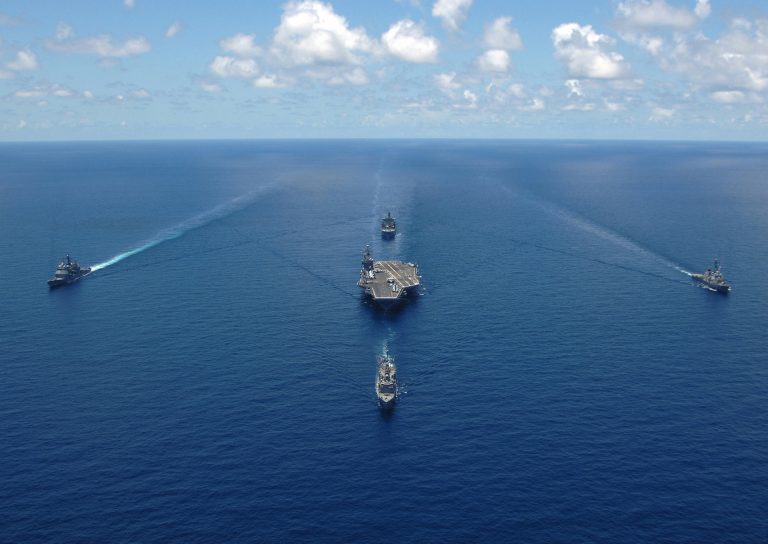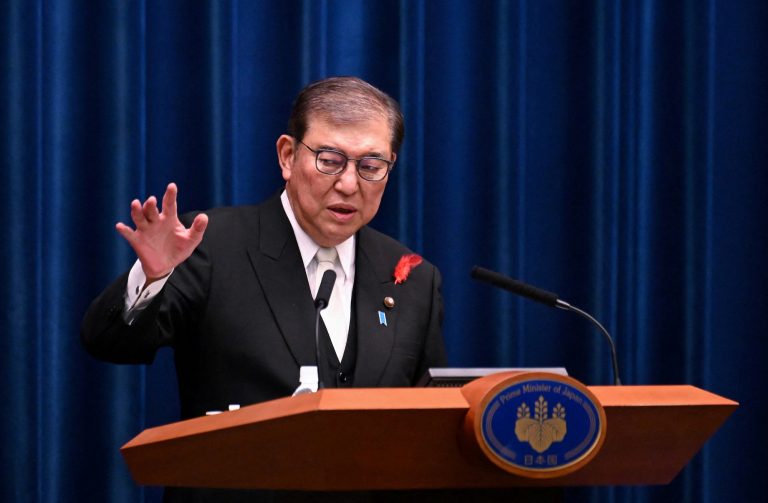India plans to send four warships into the contested South China Sea waters in August, according to its Defense Ministry. The exact date of departure has not been revealed. The two-month deployment will also include joint exercises with other Quad partners—the United States, Australia, and Japan.
The Indian task force sailing to the South China Sea will consist of a guided-missile destroyer, an anti-submarine corvette, a guided-missile frigate, and a guided-missile corvette. They will participate in the Malabar 2021 naval exercises, which will be the second time the Quad coalition takes part in the mega wargame. In addition, the group also plans to work with naval units from the South China Sea nations, including Vietnam, the Philippines, Singapore, and Indonesia.
“The deployment of the Indian Navy ships seeks to underscore the operational reach, peaceful presence, and solidarity with friendly countries towards ensuring good order in the maritime domain,” the Indian Navy said in a statement. It added that such maritime initiatives “enhance synergy and coordination” between the Indian Navy and friendly nations “based on common maritime interests and commitment towards Freedom of Navigation at sea.”
The communist Chinese government claims the vast majority of the South China Sea as its own territory, which is dismissed by other nations. Beijing has built several artificial islands in the South China Sea in a bid to justify its territorial claim. Many of these islands are militarily fortified, equipped with weapons systems, and missiles. The Indian government has taken a hardened stance towards the Chinese government after the two sides clashed along the Himalayan border last year.
Collin Koh is a research fellow at the S. Rajaratnam School of International Studies in Singapore who specializes in naval affairs. In an interview with CNN, he said that the naval deployment is India’s “most visible ‘show of flag’ naval presence east of the Malacca Strait.”
Success
You are now signed up for our newsletter
Success
Check your email to complete sign up
However, he does not expect Indian warships to unnecessarily take a confrontational approach against China or even conduct freedom-of-navigation operations close to islands claimed by Beijing.
“The mere presence of the ships in the South China Sea, even if outside the 12 (nautical mile) limit of each Chinese-occupied feature, would have sufficed to meet New Delhi’s strategic objectives of signaling its intention to remain engaged in the Western Pacific,” Koh said.
The United States and the UK have already deployed naval vessels to the South China Sea. The UK’s HMS Queen Elizabeth carrier strike group is presently headed towards Japan. Beijing, irked by the British vessel, warned the UK not to do any “improper acts” while passing through the South China Sea. The group apparently did not sail close to the Chinese regime’s artificial islands while crossing the contested waters.
New aircraft carrier, Quad ties
India will begin sea trials of its first domestically developed aircraft carrier next month. Named INS Vikrant, it will boost New Delhi’s defensive and offensive capabilities while sending a strong message about the country’s technological capabilities.
The carrier will allow India to counter China’s increasing presence in the Indian Ocean. INS Vikrant is India’s second aircraft carrier; the first is a 35-year-old ship bought from Russia. China already has two aircraft carriers in service and is building a third one.
“Aircraft carriers allow India to achieve some sea control in the Indian Ocean and therefore, would prove instrumental in any economic blockade of China during crisis situations,” Yogesh Joshi told the South China Morning Post. Joshi is a research fellow at the National University of Singapore’s Institute of South Asian Studies.
China has been unnerved by the Quad alliance, accusing it of being a “military alliance aimed against China’s resurgence” and labeled it the “Asian NATO.” Beijing also stated that the Quad will “destroy the international order.”
During his recent meeting with U.S. Secretary of State Antony Blinken, India’s External Affairs Minister S Jaishankar dismissed China’s criticism. Jaishankar stressed that India has “interests that are far beyond its immediate neighbors” in this globalized world.
“People need to get over the idea that somehow other countries doing things is debited against them. I think countries do things for what are in their interests for their good and for the good of the world, and that is exactly the case with the Quad,” Jaishankar said.







